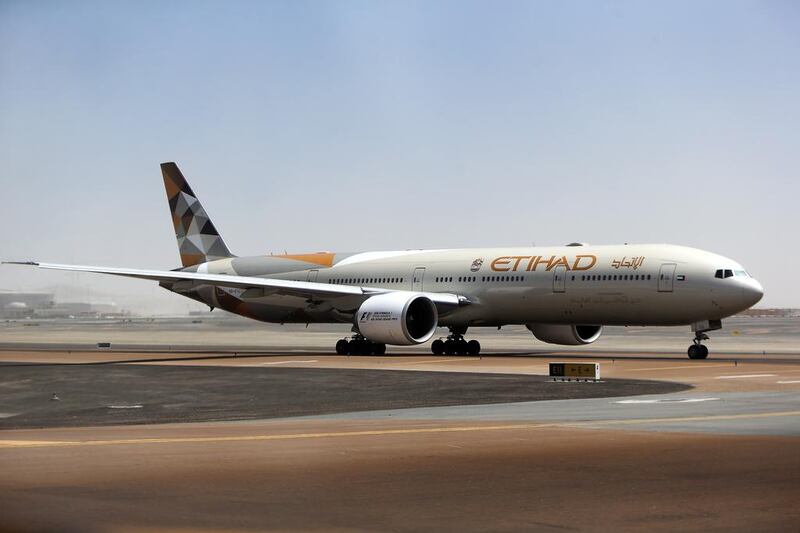Amid a “very tough” business environment, Etihad Airways carried 18.5 million passengers last year, up 6 per cent on 2015.
It will push ahead with expansion, including its fleet, even though it “will be another challenging year”, said James Hogan, the president and chief executive of Etihad Aviation Group, the parent of the airline.
“We will continue to expand prudently and efficiently, reflecting the nature of the economic environment. We remain optimistic and have every belief that our robust business model will succeed and, most importantly, stand the test of time,” he said.
Mr Hogan will step down from his role in the second half of this year.
The airline's code-share and equity partnerships delivered 5.5 million passengers on to Etihad Airways' flights last year, an increase of 9 per cent over the five million passengers in 2015.
The airline operated more than 109,000 passenger and cargo flights to 112 destination, covering 446 million kilometres, it said. Etihad Cargo carried 592,700 tonnes, which was flat year on year.
Etihad took delivery of 10 aircraft in 2016 including three Airbus A380s, five Boeing 787s and two Boeing 777-200 cargo freighters. An additional 12 aircraft are set for delivery this year, including nine Boeing 787s, two Airbus A380s and one A330-200 freighter, it said.
“2016 saw sustained growth in a very tough business environment. This is where … the [group’s] business model comes into effect through its diversity of businesses, cost-effective synergies and global spread of risk,” said Mr Hogan.
Last week, Etihad and Germany's Lufthansa announced that the two groups would increasingly work together around the world to support growth. This includes a four-year deal for Etihad to use catering services supplied by Lufthansa's LSG Sky Chefs, as well as an initial agreement to use maintenance, repair and outsourcing (MRO) services provided by Lufthansa Technik. Etihad will also relocate its operations in Frankfurt and at Munich into Lufthansa's dedicated terminals.
In 2016, Etihad’s capacity grew by 9 per cent and passenger demand rose by 8 per cent. The average load factor was 79 per cent. Overall for the industry last year, Middle East demand grew at 11.8 per cent year on year but capacity increased by 13.7 per cent, according to the International Air Transport Association (Iata). Capacity growth is forecast at 10.1 per cent this year, ahead of expected demand growth of 9 per cent. Sluggish global trade, lower oil prices and heightened political uncertainty have dampened demand for the aviation sector even as Arabian Gulf carriers and airports continue to build up capacity and infrastructure.
Trade body Iata forecasts that airlines in the Middlle East will generate a net profit of US$300 million this year, a drop from the $900m projected for 2016. Average yields for the region’s carriers are low but unit costs are even lower, partly driven by the strong capacity expansion.
“Threats are emerging to the success story of the Gulf carriers, including increases in airport charges across the Gulf states and growing air traffic management delays,” said Iata.
malrawi@thenational.ae
Follow The National's Business section on Twitter






